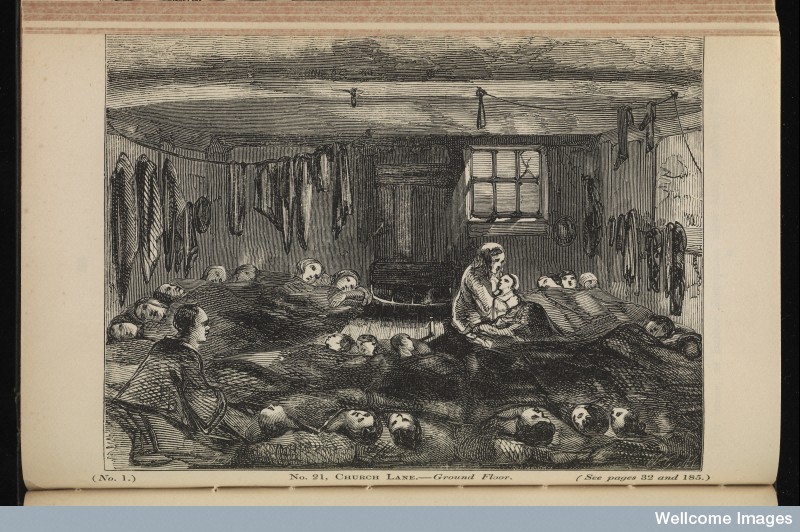
The image above comes from a book with the sort of snappy title the Victorians were good at: “Sanatory progress:- being the fifth report of the National Philanthropic Association for the promotion of social and salutiferous improvements, street cleanliness; and the employment of the poor : so that able-bodied men may be prevented from burthening the parish rates, and preserved independent of workhouse alms and degradation.”
Basically, it’s about drains. Good plumbing is a one-off investment that saves lives across all age, income and ethnic groups. You need maintenance of course, but basically, decent sanitation is switch we could flick to end cholera and other water-borne killers in much of the world. Which is why I’m still a bit surprised to find studies like this one, published a couple of weeks ago in the New England Journal of Medicine, trying out a single-dose cholera vaccine.
If you’re a adult in Bangladesh, it turns out, a single dose vaccine reduces your chance of getting cholera any time in the next six months by around half. Researchers don’t know how long the effect of a single dose of the vaccine might last; earlier research on a two-dose vaccine suggested that it reduced the risk of getting cholera by half for somewhere between two and 5 years, but the results only included the people who took all of their vaccines at the full dose. In the real world, getting people to come back for a second dose of vaccine after two weeks is a pain. That’s why they’re trying a one-dose regime. But the new study suggests that if you’re a kid under 5 — the group most likely to get cholera in the first place, the single dose vaccine had no measurable effect. And of course the cholera vaccine has no effect on all the other causes of diarrhoea and other infections that are water-borne.
Dreaming up new vaccines, developing and testing them, then delivering them to millions of people — potentially every few years — is a noble (if expensive) enterprise, heavily underwritten right now by the Grand Masters of 21st century philanthropy, the Bill and Melinda Gates Foundation. But we know from the history of cities such as London that investments in “salutiferous improvements” by an earlier generation of philanthropists achieved broader and longer-lasting benefits than a single- disease-specific vaccine, and in a relatively short time. So why the obsession with drugs not drains?
